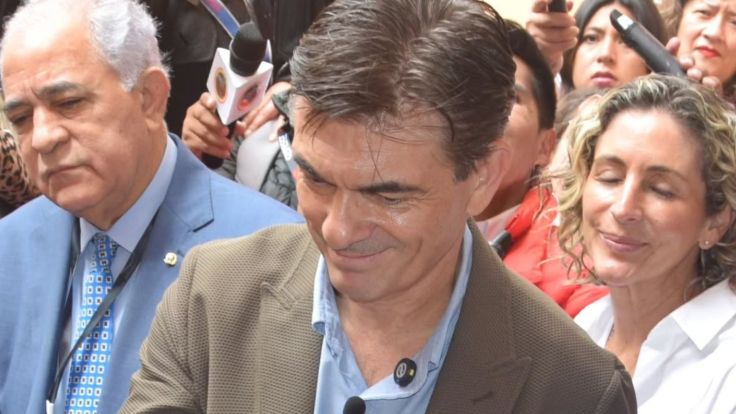Bolivian Presidential Election Results: Rodrigo Paz Makes History in First-Ever Runoff Vote — Is This the Start of a New US–Bolivia Era?
Paz's victory ends nearly two decades of left-wing dominance in Bolivia

Rodrigo Paz Pereira has won Bolivia's first-ever presidential runoff election, marking a decisive break from nearly two decades of left-wing dominance under the Movimiento al Socialismo (MAS) party.
According to preliminary results released by the Supreme Electoral Tribunal, Paz secured about 54.6% of the vote, defeating former president Jorge 'Tuto' Quiroga, who received roughly 45.4%.
The landmark election, held on Sunday, 19 October 2025, followed a first round in August that failed to produce a clear winner. The result signals a major political shift in Bolivia and raises new questions about the country's future relations with the United States.
End of an Era for MAS Rule
The runoff marks the first time since 2005 that no candidate from MAS reached the final round. The left-wing party, once led by Evo Morales and later Luis Arce, suffered a dramatic collapse, with its first-round candidate gaining just over three per cent of the national vote.
Analysts attribute the decline to a deepening economic crisis, inflation exceeding 20% and chronic shortages of fuel and US dollars.
Paz's victory represents a major change for voters weary of political stagnation and economic hardship. His centrist platform focused on rebuilding fiscal stability, decentralising budgets and attracting foreign investment, while preserving targeted social programmes.
As reported by The Guardian, his campaign message of 'popular capitalism' resonated with small business owners and working-class Bolivians seeking tangible economic relief.
Who Is Rodrigo Paz Pereira?
A senator representing the southern department of Tarija and son of former president Jaime Paz Zamora, the 55-year-old politician leads the Partido Demócrata Cristiano (PDC).
Despite his political lineage, Paz positioned himself as a moderniser offering pragmatic solutions to Bolivia's economic challenges.
Throughout the campaign, he pledged to expand access to low-interest loans for small entrepreneurs, reduce import tariffs to lower consumer costs and audit the state-owned energy firm YPFB.
His running mate, Edman Lara Montaño, promised a tough stance on corruption. Addressing supporters in La Paz after his win, Paz said: 'What matters to Bolivians are jobs, strong institutions and respect for private property. Ideology doesn't put food on the table.'
Electoral Results and Political Outlook
With just over 97% of ballots counted, the early tally gave Paz a comfortable lead of nine percentage points, according to the same report by The Guardian. His PDC party also emerged as the largest bloc in Congress, with 49 deputies and 16 senators.
However, it falls short of a majority, meaning coalition-building will be necessary to advance reforms.
Paz's campaign covered more than 220 of Bolivia's 327 municipalities, including former MAS strongholds in the Andes and the lowlands. His broad support base suggests a growing appetite for moderation and change across the political spectrum.
The electoral court has up to seven days to certify the final results before the transition begins.
What the Victory Means for US–Bolivia Relations
Paz has signalled his intention to rebuild relations with Washington after years of diplomatic strain, saying he hopes 'to build a close relationship with one of the most important governments in the world'.
The United States and Bolivia have had limited engagement since 2008, when disputes over drug policy and sovereignty led to the expulsion of the US ambassador.
Analysts say a pro-market, centrist government could revive cooperation on trade, investment and energy. Bolivia's lithium and natural gas reserves are of growing interest to Washington as it seeks secure supply chains for green technology.
Yet Paz faces major challenges, including a struggling economy and a divided legislature, as he balances foreign investment with national control of resources.
Key Developments to Watch
The coming weeks will reveal the composition of Paz's first cabinet, which is expected to blend technocrats and regional leaders. Policy priorities will likely focus on easing inflation, securing energy supply and reviving investor confidence.
Meanwhile, the opposition's reaction — particularly from MAS-aligned unions and social movements — will be critical to maintaining political calm.
The United States is also watching closely. Any early diplomatic outreach, trade announcements or energy agreements could signal a thaw in relations and mark the start of what some analysts are calling a potential 'new US–Bolivia era'.
© Copyright IBTimes 2025. All rights reserved.





















